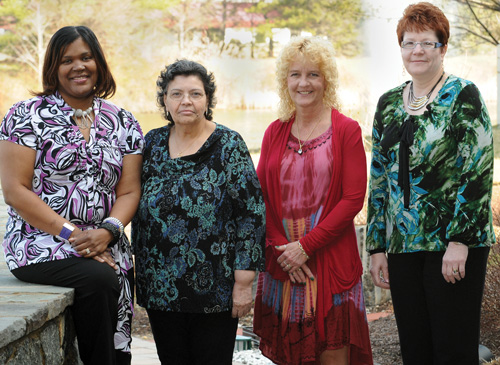Clinical trials test drugs to target breast and lung cancers, potential shingles vaccine


Two breast cancer trials currently under way at the Helen F. Graham Cancer Center are already showing promise, says Christiana Care’s principal investigator, Michael Guarino, M.D.
”The hope is that by targeting to growth pathways, we get better results,” Guarino says. In one trial, trastuzumab, a drug known to be effective in treating certain types of cancers, is linked with another antibody called pertuzumab and the combination creates a dual blockade to delay spreading of the disease. Another trial links trastuzumab and a toxin, Maytansine, to form a compound that targets and poisons cancerous cells while sparing normal cells and reducing chemotherapy side effects.
Says Dr. Guarino: ”The concept is simple. If we can find a target in the cancer cell, we can hit that target and knock out the bad guys without hitting the good guys.”
His group is also using new drug compounds to attack non-small-cell lung cancer, which comprises some 85 percent of all lung cancer patients. Patients with widespread lung cancer who no longer respond to first-line therapy can benefit from a drug called erlotinib, which, combined with a chemical called ARQ–197, provides another way to target two different tumor cell-growth pathways.
Still another clinical trial, in partnership with the Hoosier Oncology Group, compares standard chemotherapy with or without ZD6474, a drug that inhibits cancer cell growth by preventing the growth of new blood vessels that would help the cancer to grow, as well as by targeting a growth receptor on cancer cells. Pancreatic, lymphoma and lung cancer phase I trials are also under way, according to Dr. Guarino.
Trials exploring vaccines for shingles, an extremely painful inflammation of the sensory nerves caused by the same virus as chicken pox, are in progress. Healthy people recover from shingles, sometimes with chronic pain. But in patients who are elderly and have suppressed immune systems, shingles can cover the body and become life-threatening. Chronic pain also can be much worse in these patients. The currently available live virus vaccine is not recommended for these patients for fear of giving them an active infection. Researchers are trying to determine if a vaccine using the killed shingles virus works as well.
“We believe the killed vaccine is safer, but is it effective?” Dr. Guarino asks. “Learning the answers to these important questions is revolutionizing the way we care for people with cancer.”